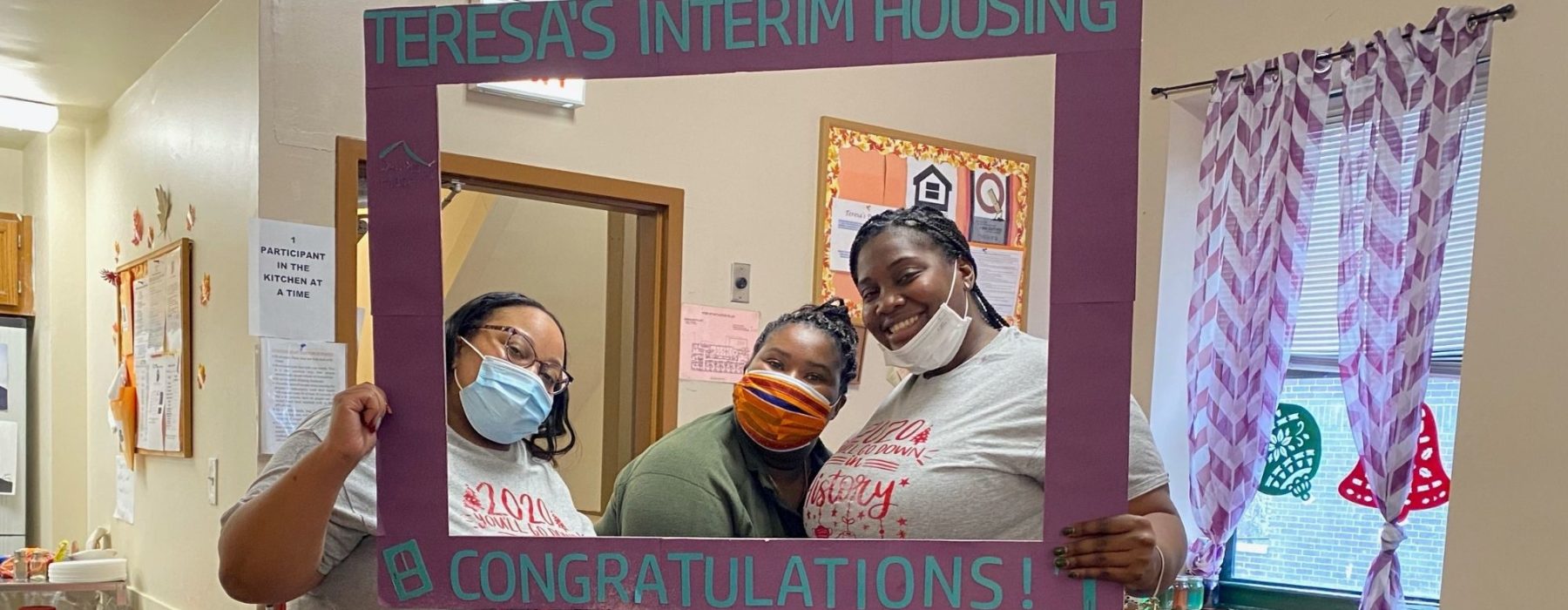Sometimes our life stories feel written for us.
Beginning at an early age, Quashay faced a lot of hardships. In third grade, she was thrust into our nation’s fractured foster care system, spending the majority of her childhood in and out of foster homes where she had no structure, no support system, and no feeling of safety. As an adult, these challenges persisted, but took on a new face, the face of an abusive partner.
“All I knew was to get beat on.”
Understandably, Quashay struggled under the weight of a depression to which she saw no end. She blamed herself for everything that happened to her, shut everyone out and shut down mentally. She felt as though she was at a dead-end with nowhere to go. That is, until she moved into Teresa’s Interim Housing.
At first, Quashay found it difficult to transition to the stability of Teresa’s. She didn’t trust anyone and felt like she had to put up a wall to keep others out in order to keep herself safe. There was a lingering feeling that people were working against her and only there to tell her, “don’t do this, don’t do that.”
Learning to trust people again was a key step in Quashay’s journey to healing and she credits Deborah’s Place staff for helping her get there.
“Staff sat us down and said, ‘We want to see you guys do better. We want to see you guys housed. We want to see you guys stand on your own, living by yourself, being responsible. We don’t want to see you in a situation like this again.’”
Once she had a safe place to stay, people she knew she could trust, and access to vital resources, Quashay began working towards the life she wanted.
During a typical 120-day stay at Teresa’s Interim Housing, residents meet with their case managers once a week to set self-identified goals and start the process of breaking down any barriers to housing they face. These barriers often include evictions, lack of income, overdue utility bills, bad credit, etc. During their stay, residents also look and apply for affordable and low-income housing.
This was Quashay’s time to begin a new chapter in her life and achieve her goals. For 120 days, Quashay worked hard to settle her eviction, pay off her utility bills, start paying of student loans and get her record expunged.
“Being at Teresa’s, I was able to put myself first, make myself my first priority, love myself, provide self-care, and ask myself ‘what do I want out of life?’ I asked myself, ‘what love do I want for myself?’”
Accessing one’s own self-love is something everyone struggles with, but it can be made significantly more difficult when you’ve experienced domestic violence, homelessness and other complex traumas like Quashay. Without shelter, food and support, it can feel nearly impossible to envision a new life. Quashay was determined to not let her life’s story be written by her past experiences, and Deborah’s Place provided her the tools to do so.
Quashay now has her own apartment, her own furniture, and is in a new, very different chapter of her life – one that she is the sole author of. She hopes to return to school to get her Master’s Degree in Computer Science.
Quashay credits the staff at Deborah’s Place for helping her accomplish her goals, but her resiliency and commitment to self is what made those goals a reality. Deborah’s Place offers women their key to healing, achieving their goals and moving on from the experience of homelessness, but it is the women we serve who ultimately decide to turn the key, opening a new door to a better life. Quashay is a perfect example that steadfastness and self-compassion can propel us forward, and that if we have access to the resources and supports we need, we can write our own story.
